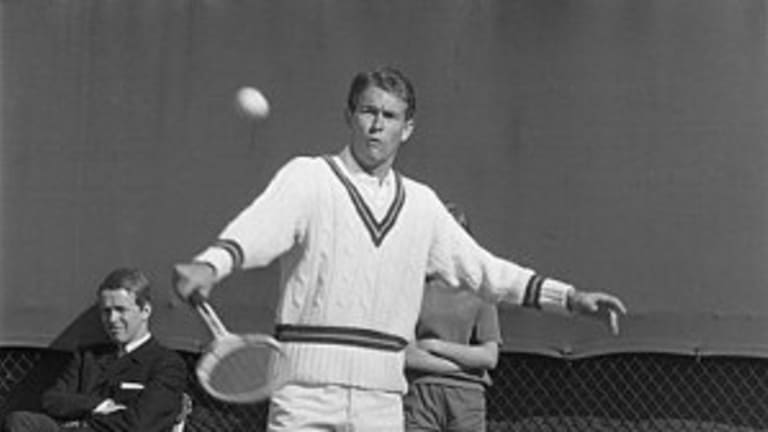This year’s class of inductees into the International Tennis Hall of Fame features three of the most important movers and shakers in tennis: Cliff Drysdale, Charlie Pasarell, and Ion Tiriac. All three men helped shape the game we know today, but only two of them can be called founding fathers of Open-era pro tennis.
That honor goes to Drysdale and Pasarell who, unlike the entrepreneurial and considerably more controversial Tiriac, often stood elbow-to-elbow in the meeting rooms and other nominal trenches where the political wars that shaped the game we know today were fought out. Tiriac, in fact, was often in conflict with his fellow inductees. He was the freebooter, the pirate to Drysdale and Pasarell’s fair impersonation of the king’s men—if Jack Kramer, the George Washington of men’s pro tennis, could have been so called.
All three men were excellent players in their day, but Drysdale was the best of the lot. He was one of the “Handsome Eight” who signed contracts to play on the World Championship Tennis pro tour alongside the likes of Rod Laver, Ken Rosewall, and other familiar names who had previously bolted the amateur ranks. The action of the Handsome Eight and the solidarity it represented had a seismic effect on tennis politics, because it stripped the amateur establishment (represented by the ITF and its affiliates) of many potentially great—and marketable—amateur players.
The Grand Slam tournaments and the amateur game in general could live with defections by individual players who had already established themselves. But if you can imagine what tennis would be like if the present-day Top 10 suddenly decided to skip Wimbledon and the other Grand Slam events, you can see how the Handsome Eight made the establishment realize that they could no longer hold the amateur fort. If the best 10 or 15 players in the world were ready to sacrifice the prestige of competing in amateur events—including Wimbledon and what was then still called the U.S. National Championships—and take their chances on a nascent pro tour, it was endgame.
Cliff and his cohorts—Nikki Pilic (from what was then Yugoslavia), Americans Butch Buchholz and Dennis Ralston, Pierres Barthes of France, Great Britain’s Roger Taylor, and those two familiar Aussies, John Newcombe and Tony Roche—had sounded a death knell for the amateur game.
In a way, that was Drysdale’s Rubicon. Born and bred in South Africa when it was still an extremely conservative country living under the blight of apartheid, Drysdale showed considerable courage and vision when he broke away from the amateur establishment as well as his nation, in which opportunities were small and isolation from the world community loomed.
To say it all worked out okay is an understatement.
